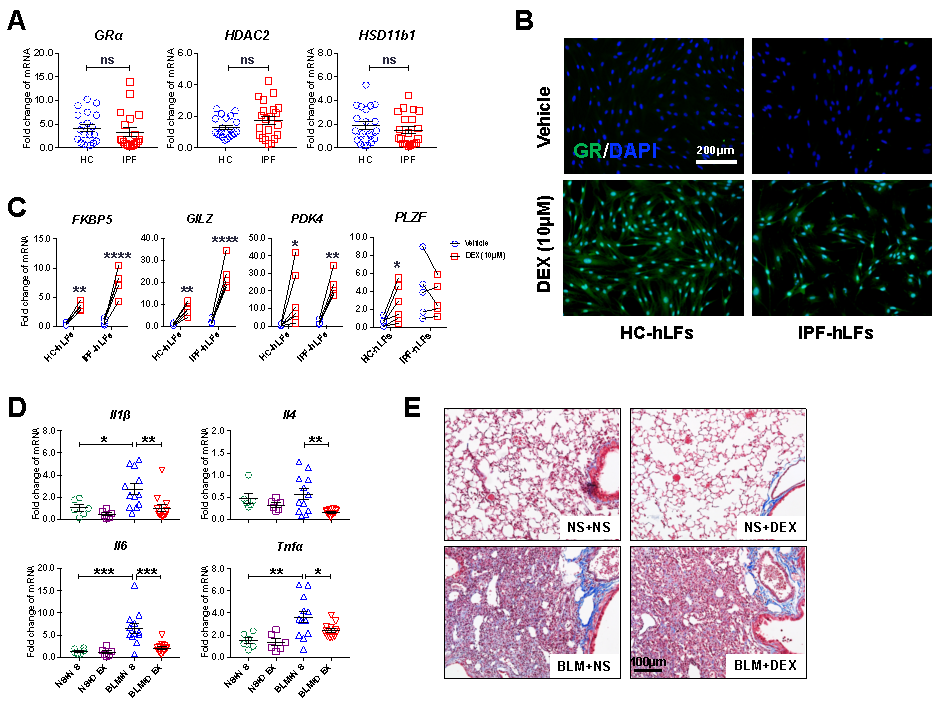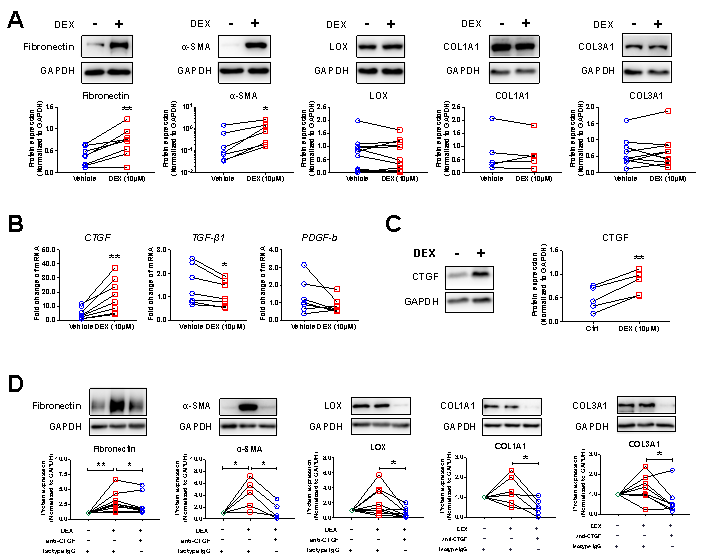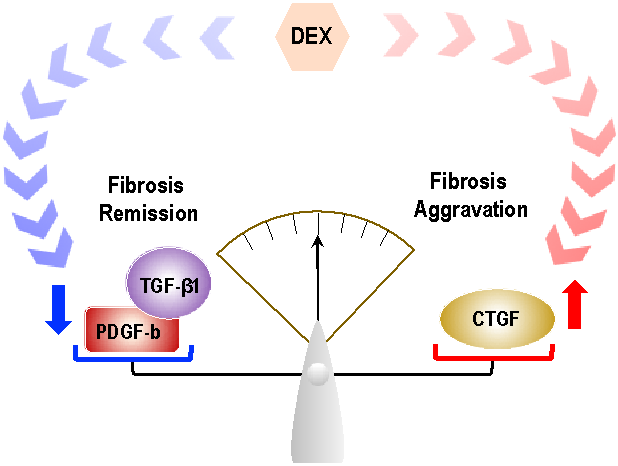Professor Tang Xiaoxiao’s team reveals the key reasons for the poor effect of glucocorticoids in treating idiopathic pulmonary fibrosis
2022-06-031184Recently, the team led by Professor Tang Xiaoxiao with SKLRD’s pulmonary fibrosis group has made important new progress in the field of pulmonary fibrosis research. The original research fruit titled “Induction of Connective Tissue Growth Factor Accounts for the Inability of Glucocorticoid Suppression on Pulmonary Fibrosis” was published in the journal Clinical and Translational Medicine under Wiley, an renowned international publishing group (JCR Area 1, CAS, IF=11.492). This study revealed key reasons for the poor effect of glucocorticoids in treating idiopathic pulmonary fibrosis.
Idiopathic pulmonary fibrosis (IPF) is an interstitial lung disease with unknown etiology, rapid progression, and high mortality, with a median survival period of only 2-3 years, and a lack of effective therapeutic drugs. Glucocorticoids has been used in the treatment of IPF, but the clinical efficacy is poor. Some studies have speculated that IPF patients have decreased sensitivity towards glucocorticoids, but the data are limited and have remained inconclusive.

IPF patients’ hormone sensitivity and responsiveness are normal; glucocorticoids still cannot inhibit pulmonary fibrosis on the basis of effective anti-inflammatory effects
Our study found that the expression of glucocorticoid sensitivity-related factors (e. g., GR, HDAC2, and HSD11b1) in the lung tissues of IPF patients was not significantly different from that in the lung tissues of the healthy controls. Stimulated by the glucocorticoid dexamethasone (DEX), glucocorticoid receptors increased in the nucleus and hormone-induced gene expression was increased as much as in normal controls, indicating that the hormone sensitivity and reactivity of IPF patients were normal. In the lungs of mice with bleomycin-induced pulmonary fibrosis, although DEX can effectively reduce the expression of inflammatory factors, it cannot reverse the development of pulmonary fibrosis, which is consistent with the clinical effect of glucocorticoid treatment of IPF.

Glucocorticoids have dual regulatory effects on profibrotic factors; profibrotic effects are mediated by up-regulation of CTGF
Vitro experiments showed that DEX promoted fibronectin and α-smooth muscle actin (α-SMA) expression in IPF-derived lung fibroblasts. Further exploring the molecular mechanism, we found that DEX has different regulatory effects on different profibrotic factors, that is, DEX can reduce the expression of transforming growth factor-β1 (TGF-β1) and platelet-derived growth factor-b (PDGF-b), but also up-regulate the expression of connective tissue growth factor (CTGF). Further, by performing functional experiments in IPF patient-derived lung fibroblasts using neutralizing antibodies, siRNA and inhibitors, we confirmed CTGF as a key molecule mediating the up-regulation of Fibronectin and α-SMA expression by DEX.

Schematic representation of the dual regulatory effects of glucocorticoids on profibrotic factors
This study is the first one to demonstrate the normal hormone sensitivity and responsiveness of IPF patients, which has clarified this long-term controversial issue in the field, and revealed the key reasons for the poor effect of glucocorticoid treatment of IPF, clarified that glucocorticoids mediated profibrosis effect through CTGF, providing new ideas and important scientific basis for the treatment of IPF.
















